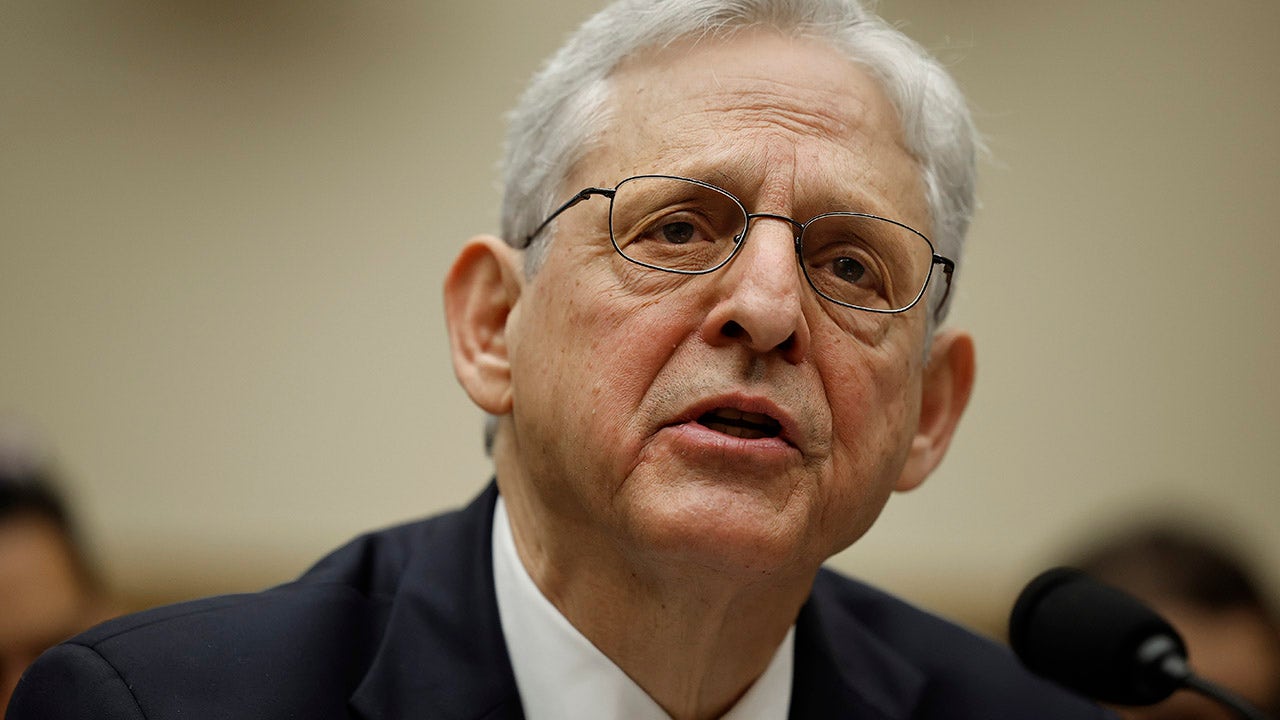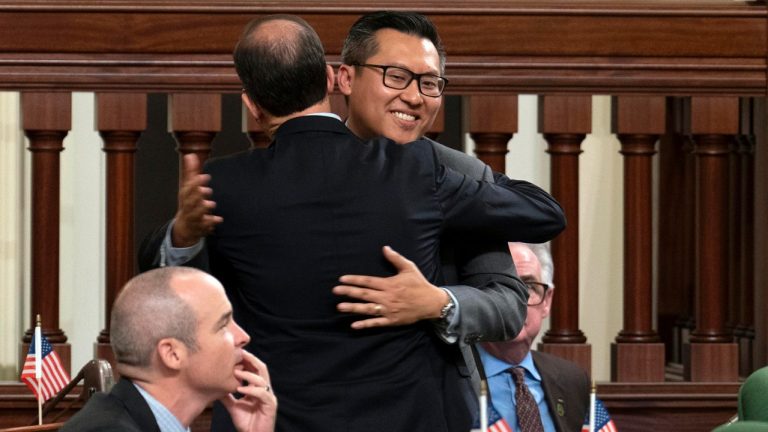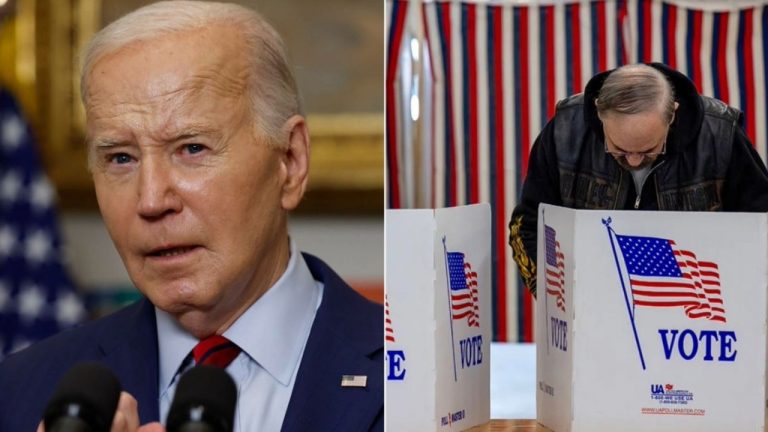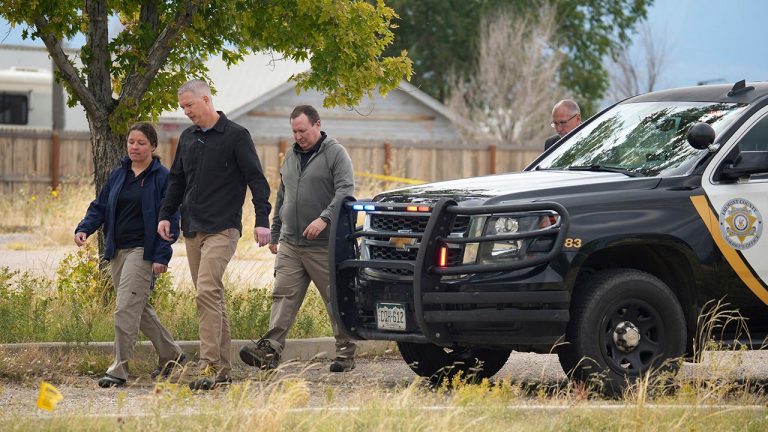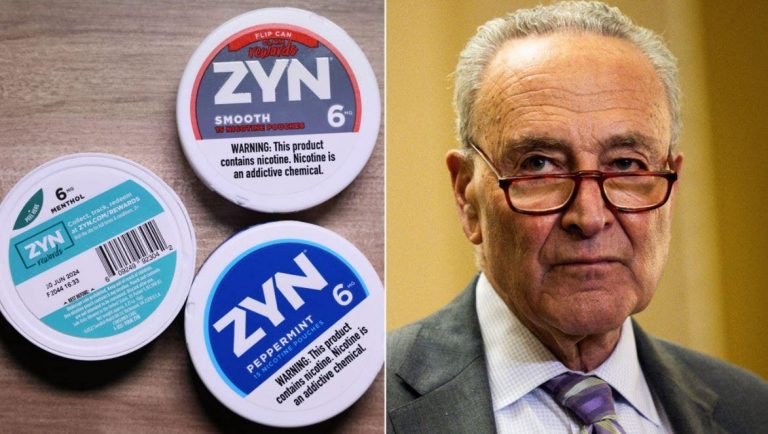House Republicans say Garland could be arrested over Biden tapes before contempt vote
Rep. Anna Paulina Luna, R-Fla., has issued a stern warning to U.S. Attorney General Merrick Garland, stating that he could face arrest for failing to deliver tapes of Special Counsel Rob Hur’s interview of President Biden to Congress. Luna, accompanied by nine other House Republicans, including members from the Freedom Caucus as well as more moderate members, made this statement during a press conference on Wednesday.
Luna emphasized that Garland still has the opportunity to comply with the congressional subpoena for the tapes. However, if he fails to do so, she declared that they would move forward with calling for a privilege motion on inherent contempt to be brought to the floor on Friday morning.
If this motion is successful, Luna explained that her fellow House Republicans would direct House Speaker Mike Johnson, R-La., to call upon the Sergeant-at-Arms, who has the authority under the inherent contempt motion to take Garland into custody. She highlighted that this would be a consequence of Garland’s own actions, as nobody is above the law, and if he chooses to defy it, they will take necessary action.
Luna stressed the importance of Congress being able to enforce its investigative abilities to prevent being undermined by other branches of government, which would jeopardize its status as a co-equal branch. This issue has gained attention due to the different approaches taken in the case involving Garland.
While a criminal contempt resolution was passed on June 12, referring Garland to his own department for criminal charges, the Department of Justice decided not to prosecute him based on Biden’s executive privilege claims over the interview tapes. In response to this, Luna and her colleagues are now pushing for the use of inherent contempt powers.
Notably, inherent contempt power allows each house of Congress to unilaterally arrest and detain individuals obstructing legislative duties. This authority, as outlined by the Congressional Research Service, extends beyond combating subpoena non-compliance to include actions perceived as obstructing or threatening the legislative powers of either house.
When questioned about potential alternatives to enforce the subpoena, Luna suggested that while House Speaker Johnson may be open to discussions, the current circumstances necessitate a swift resolution. She emphasized that the American people’s trust in governmental processes, particularly within the Department of Justice, is waning, and failure to act promptly would only reinforce this mistrust.
Another House Republican, Rep. Dan Crenshaw, R-Texas, supported Luna’s stance, citing instances where the DOJ displayed bias and targeted individuals opposed to their ideology. He underscored the need to hold Garland accountable to prevent such abuses of power.
Rep. Mark Alford, R-Mo., also invoked historical precedent to bolster the case for invoking inherent contempt powers, emphasizing that congressional subpoenas must be enforced independently of the executive branch’s influence. The refusal to comply with subpoenas sets a dangerous precedent, undermining the constitutionally mandated checks and balances between branches of government.
Despite the gravity of the situation, Luna acknowledged that the decision to exercise inherent contempt powers was not taken lightly. She referenced instances where Democrats hesitated to use this authority under previous House Speaker Nancy Pelosi, revealing internal political considerations that influenced their decision-making process.
The prospect of arresting the U.S. Attorney General is an extreme measure, but Luna and her colleagues believe it is necessary to uphold the rule of law and protect the integrity of congressional investigations. By invoking inherent contempt powers, they seek to demonstrate that no individual, regardless of their position, is above accountability.
As efforts to enforce the congressional subpoena against Garland intensify, Luna emphasized the broad support within the Republican Party for taking decisive action. With key members from various ideological factions backing the resolution, she expressed confidence in securing enough votes to pass it.
The looming confrontation over invoking inherent contempt powers underscores the growing tensions between Congress and the executive branch. The outcome of this dispute will not only determine the immediate fate of the U.S. Attorney General but also set a critical precedent for future interactions between the legislative and executive branches.
With the House Republicans resolute in their determination to hold Garland accountable, the stage is set for a high-stakes showdown that could reshape the dynamics of power within the federal government.


